Are you curious about financing options for your renewable energy projects? Navigating the world of loans for solar panels, wind turbines, or energy-efficient upgrades can be overwhelming, but it doesn't have to be. In this article, we'll break down the essential steps to inquire about renewable energy loans and what to look for in a lender. So, grab a cup of coffee and let's dive into the details together!
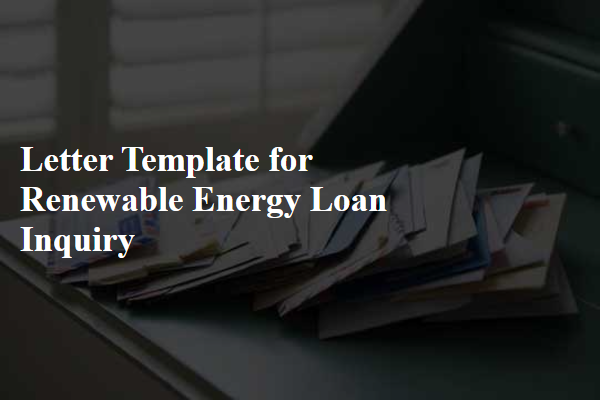
Loan Purpose and Description
Inquiries regarding renewable energy loans often pertain to financing initiatives that promote sustainability. Individuals seeking funding may specify the purpose, such as installing solar panels (photovoltaic systems) on residential properties or developing wind turbines (offshore or onshore) for energy generation. The description might include estimated project costs, benefits of reduced carbon emissions, and potential energy savings (up to 30% annually in some cases). Additionally, applicants may highlight renewable energy incentives offered by government programs, like tax credits (such as the Federal Investment Tax Credit) or grants (available through the Department of Energy), which can enhance financial viability and contribute to broader environmental goals.
Project Scope and Specifications
The renewable energy project aims to implement a solar photovoltaic system specifically designed for residential properties in California. The scope encompasses the installation of high-efficiency monocrystalline solar panels, each rated at 350 watts, totaling a capacity of 10 kilowatts for a typical household. The specifications include a rooftop mount suitable for a 30-degree tilt, ensuring optimal sunlight exposure throughout the year. This project also involves the installation of an inverter, capable of converting direct current to alternating current, with a power output of 10 kilowatts. Energy storage solutions, such as lithium-ion batteries with a combined capacity of 20 kilowatt-hours, will be integrated to enhance energy efficiency and provide backup power. The anticipated completion timeline is six months, with specific milestones for procurement, installation, and grid connection established to ensure timely delivery and operational readiness.
Financial Projections and ROI
Renewable energy projects, such as solar photovoltaic systems or wind turbines, can significantly impact financial projections and return on investment (ROI). Various factors, including initial installation costs, government incentives (tax credits up to 30% in the United States), and energy savings over time, play crucial roles in determining potential ROI. For instance, a well-planned 5 kW solar system may yield annual savings of approximately $1,200, translating to a payback period of around six years depending on local electricity rates. Furthermore, operational efficiency, influenced by elements like location (sunshine hours for solar, wind patterns for turbines), affects long-term performance and profitability, emphasizing the need for thorough financial analysis in planning renewable energy investments.
Applicant's Creditworthiness
Renewable energy financing options often depend on the applicant's creditworthiness, which is assessed through various factors, including credit score, income stability, and previous borrowing history. Financial institutions typically look for a credit score above 700 for favorable loan terms, although some programs may accept lower scores. A stable income, preferably documented over a period of two years, can demonstrate the ability to manage repayments effectively. Additionally, debt-to-income ratio (typically not exceeding 43%) plays a crucial role in evaluating an applicant's financial health. Past experiences with loans or credit cards, including repayment history and any defaults or delinquencies, significantly influence the lender's decision. Understanding these key aspects is vital for individuals seeking to finance renewable energy projects or installations, such as solar panels or wind turbines.
Environmental Impact and Benefits
Renewable energy loans can facilitate the transition to sustainable energy sources, such as solar panels and wind turbines. The environmental impact of these technologies is significant, contributing to a reduction in greenhouse gas emissions and dependence on fossil fuels. For instance, solar energy systems can decrease carbon footprints by up to 80% compared to traditional energy sources. Wind energy, generated by turbines that convert wind flow into electricity, accounts for nearly 8% of global electricity production, benefiting both the planet and economies. Additionally, the lifecycle of renewable energy installations promotes job creation in manufacturing, installation, and maintenance industries. Implementing these energy solutions not only addresses climate change but also enhances energy security and improves air quality, fostering healthier communities.
Letter Template For Renewable Energy Loan Inquiry Samples
Letter template of request for information on green energy loan products
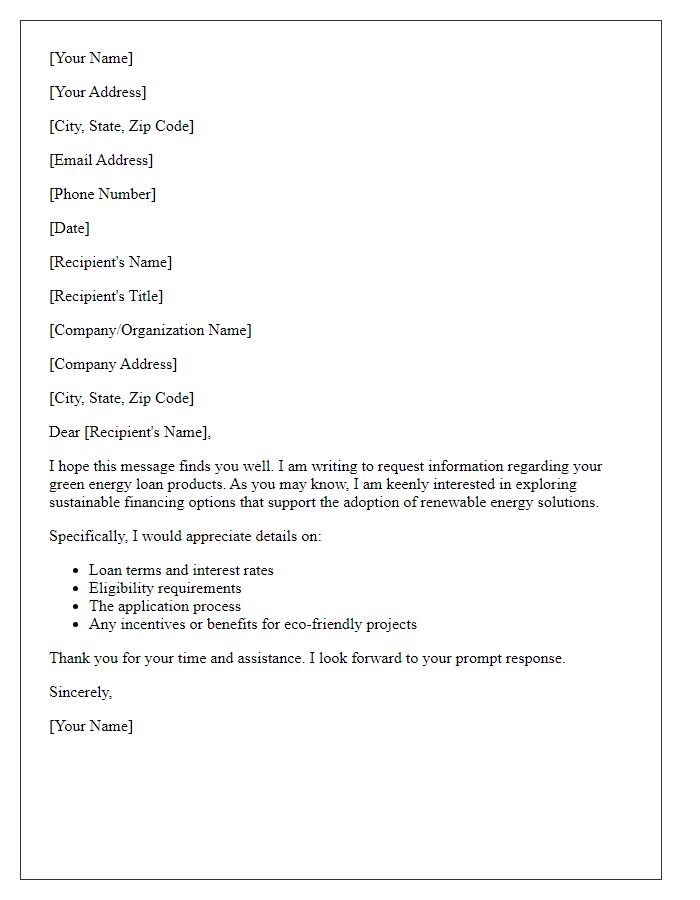

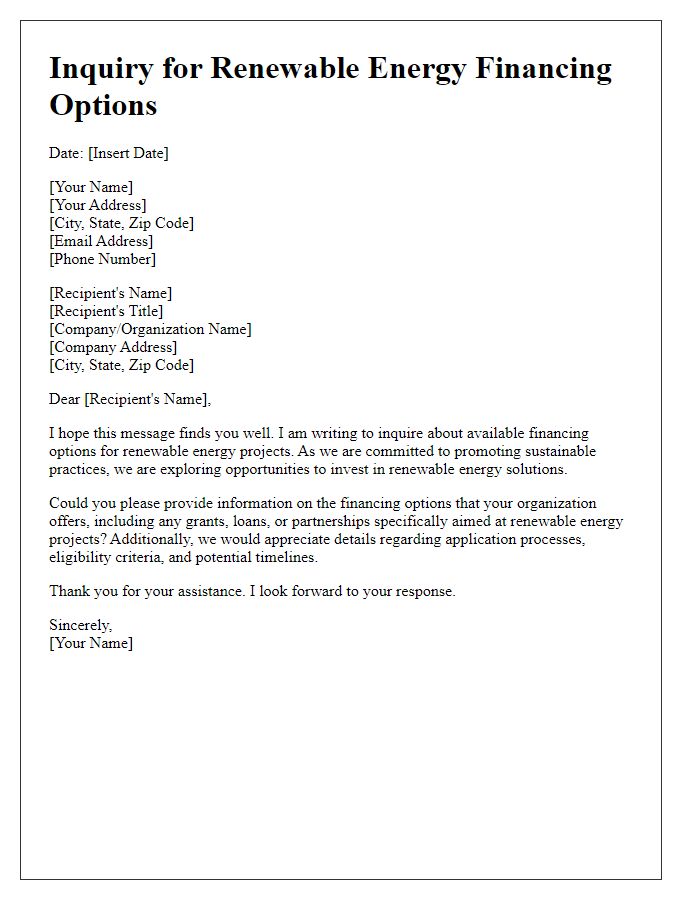
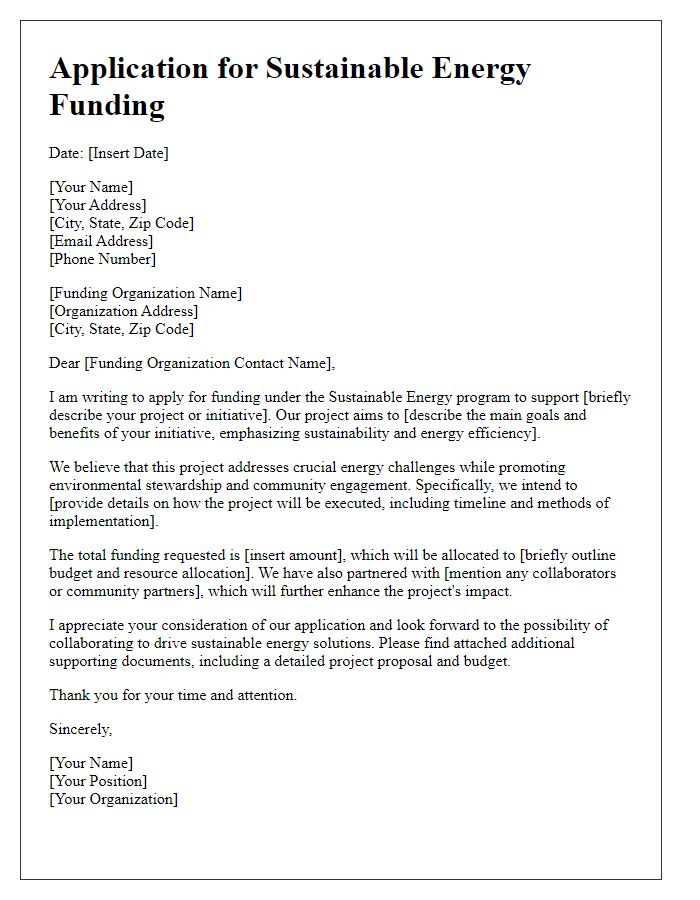
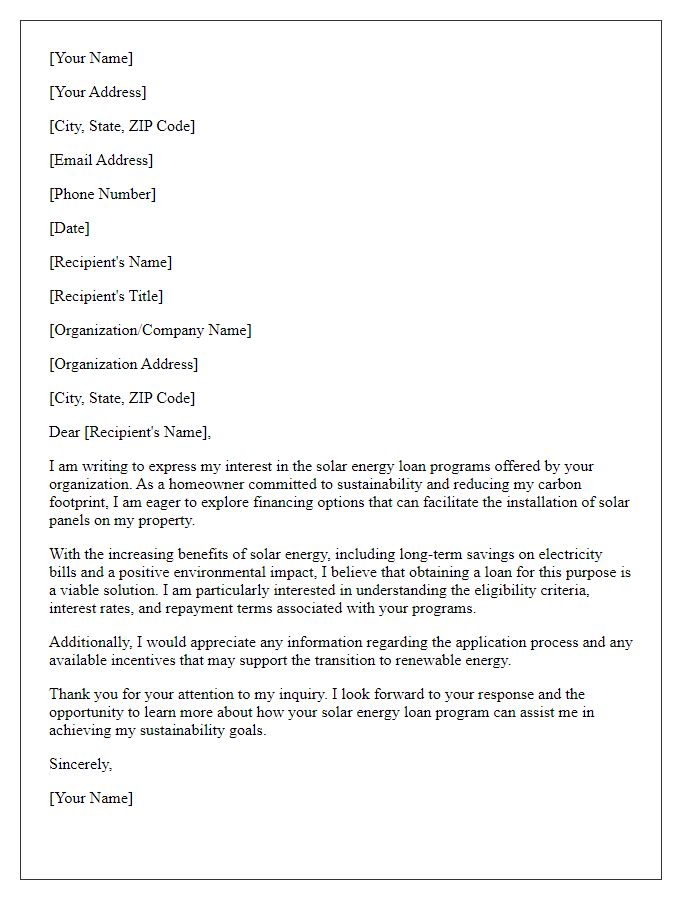
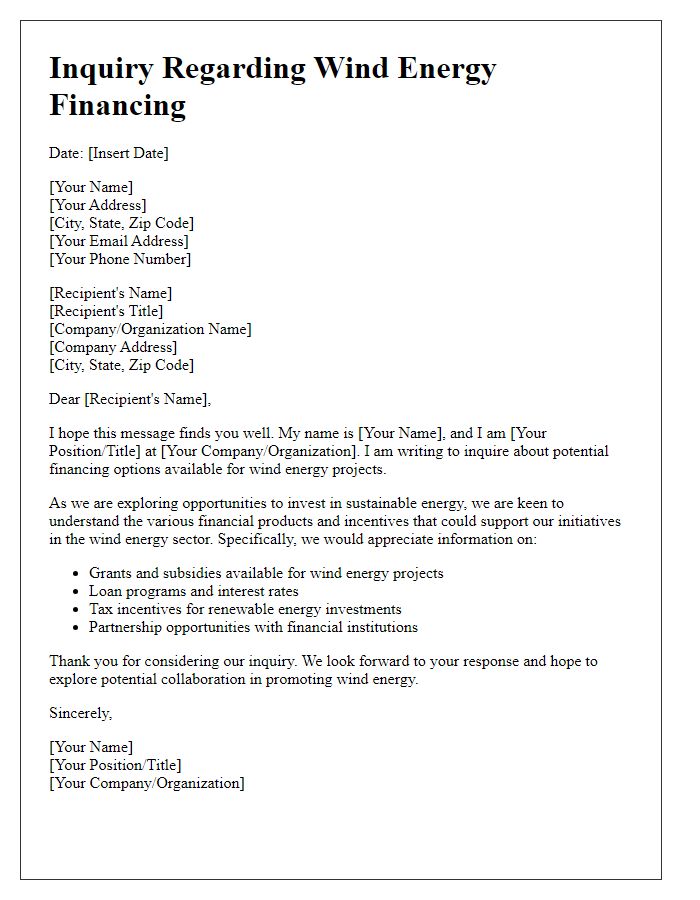
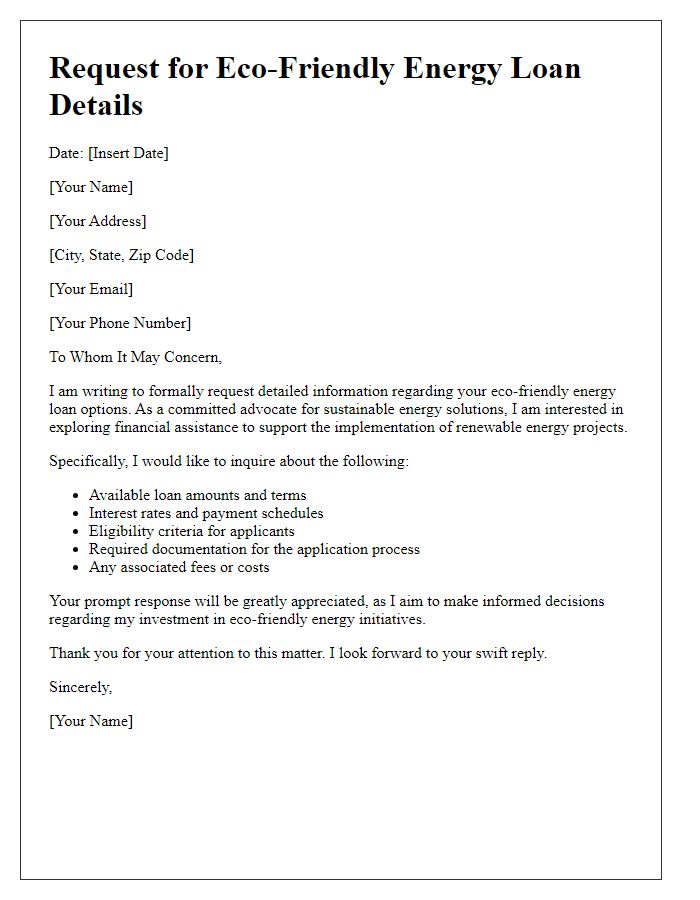
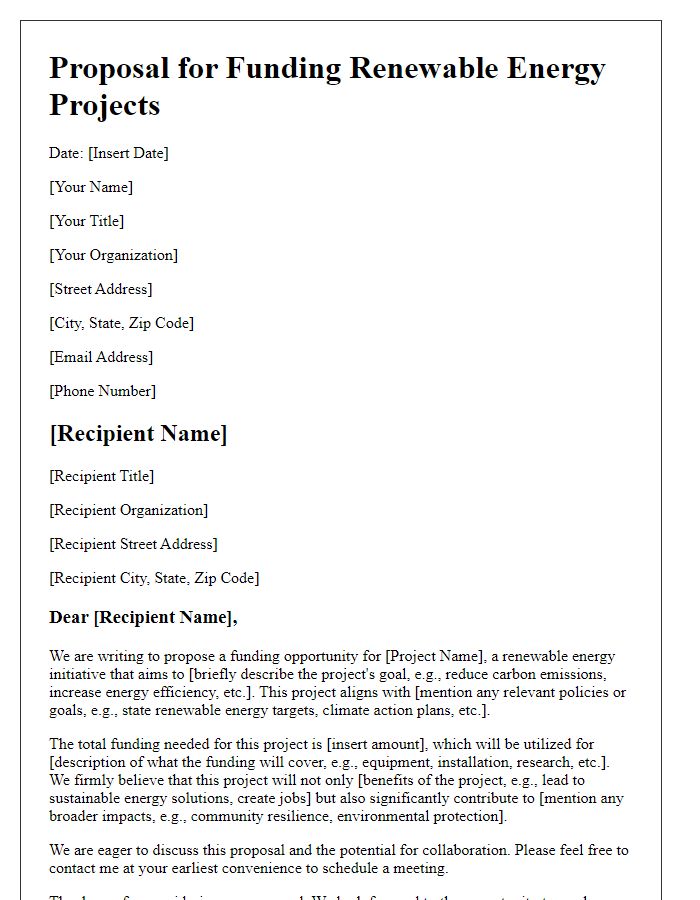
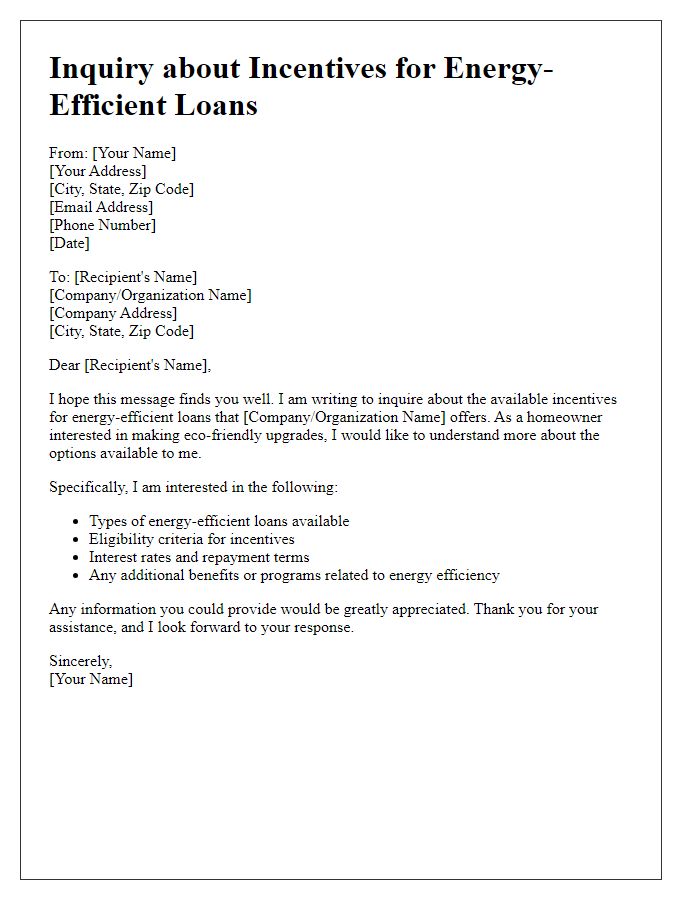
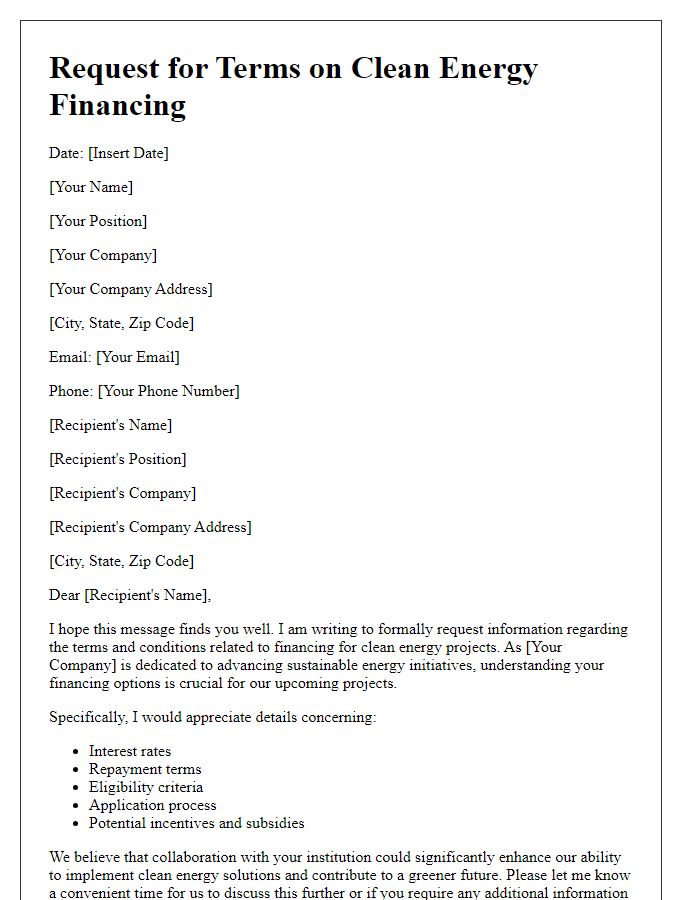
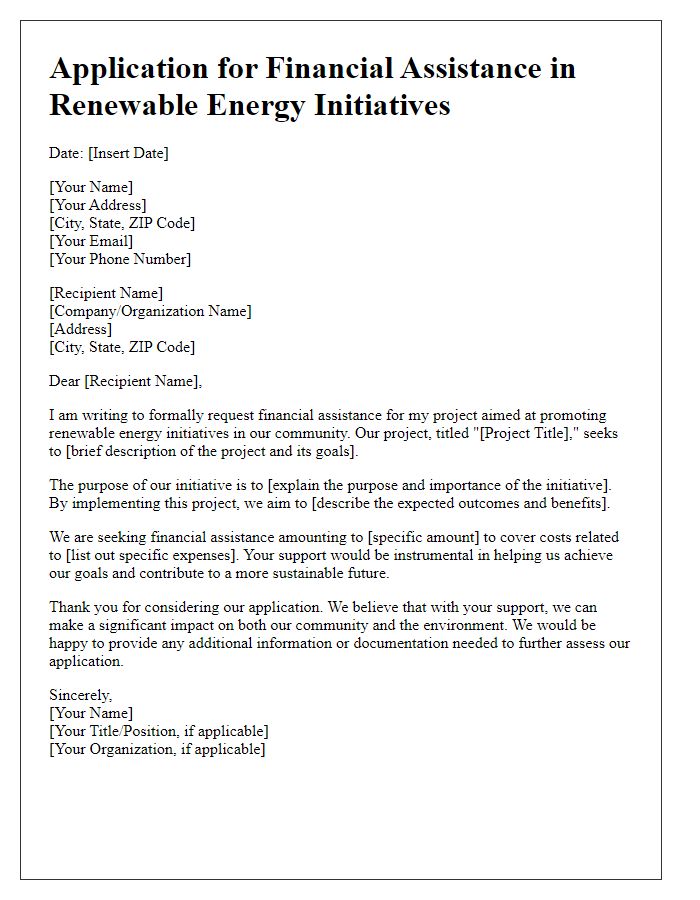


Comments